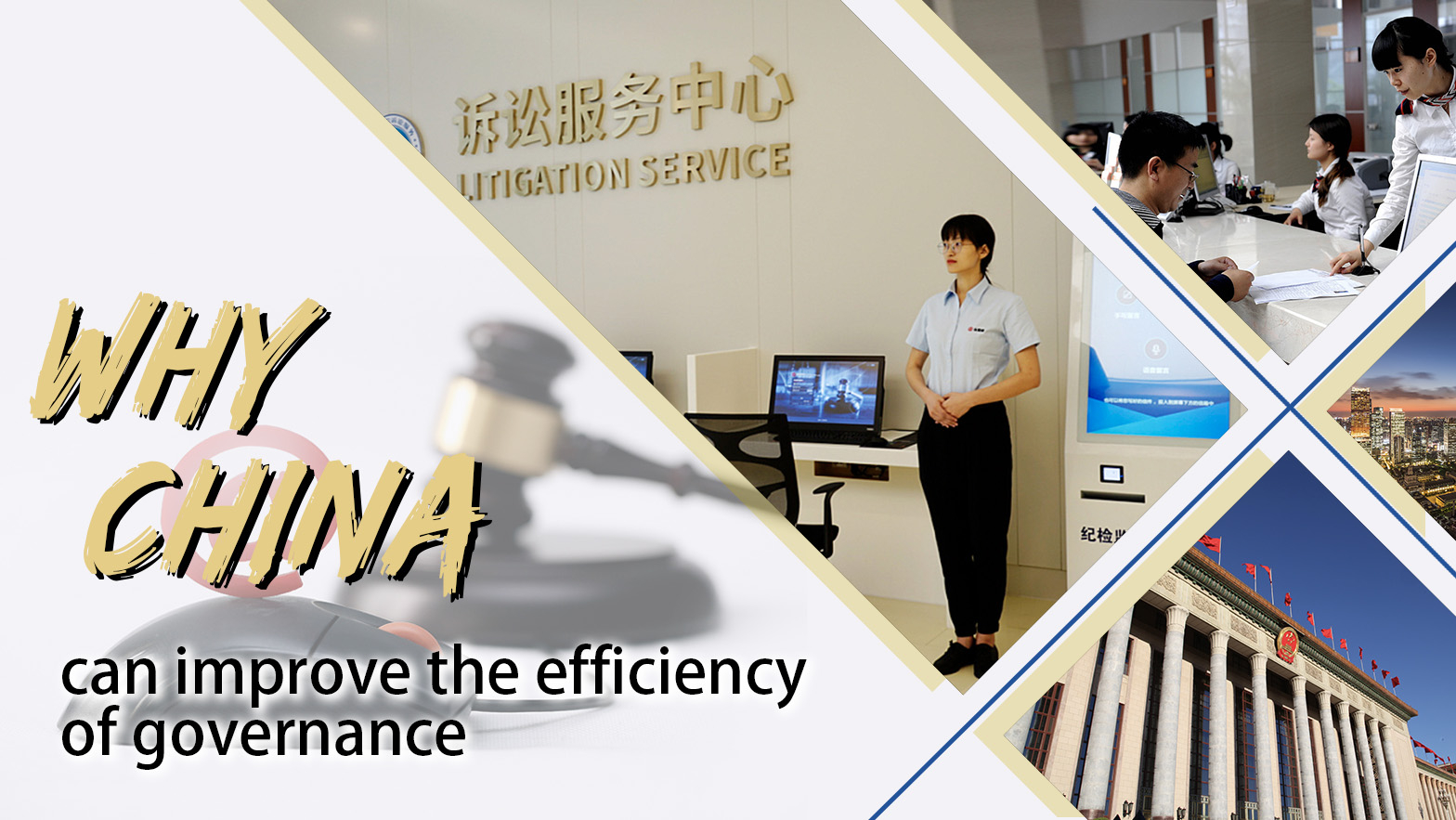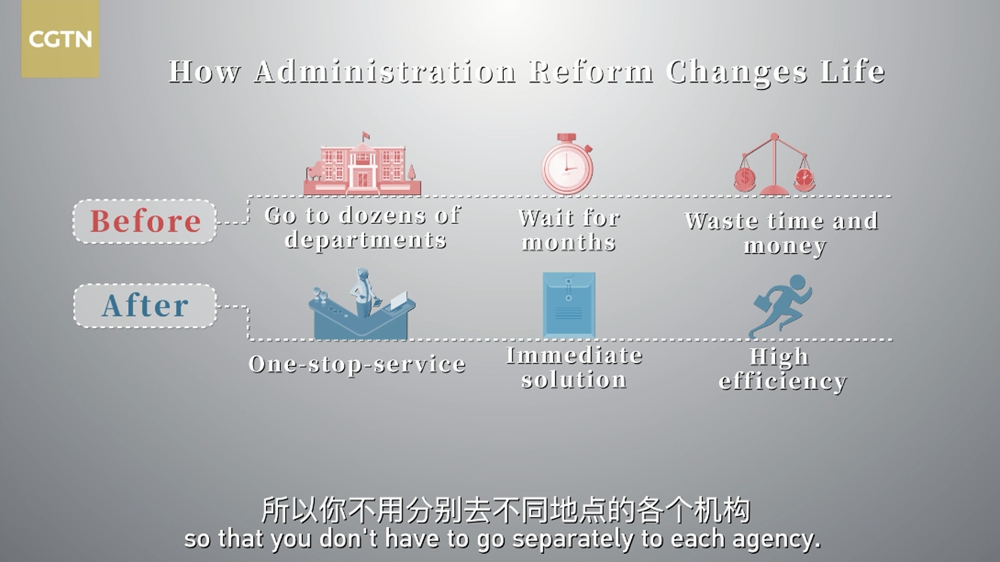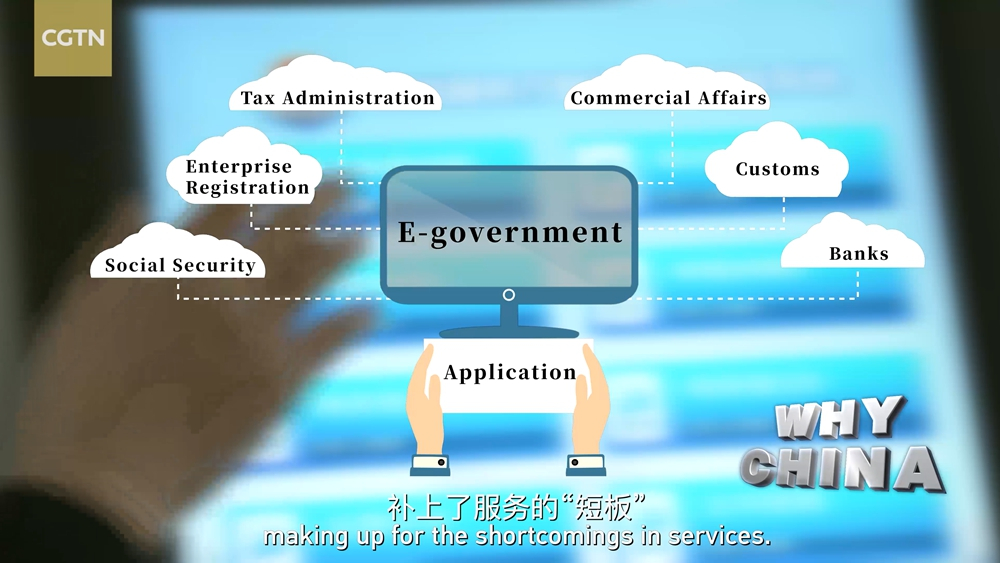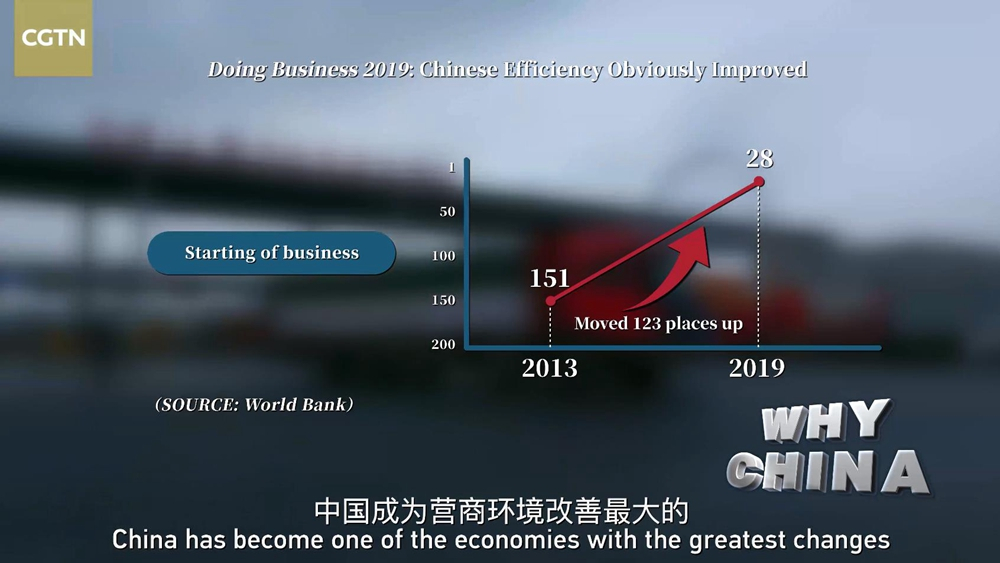13:08

The attractive business environment and better governance efficiency in China nowadays have much to do with the country's determination to streamline administration and delegate powers.
China began implementing the reform and opening-up policy in 1978. However, the World Bank report Doing Business 2013 found that the country's business environment in 2013 needed more reforms to enhance the nation's economic vitality. The report placed China second to last in terms of the ease of starting a business and dealing with construction permits that require administrative approval in the country.
To create a better business environment, the Chinese government proposed streamlining government organizations and changing government functions in 2013.
Between 2013 and 2018, China's State Council removed and handed over more than 40 percent of its administrative-approval items, effectively bringing an end to non-administrative licensing approval.
"Streamlining administration and delegating the power is meant to rebalance the relationship between the market and the government and also to rebalance central-local relations," said Ma Liang, a professor at the School of Public Administration and Policy at the Renmin University of China. Ma added that to his knowledge, it is to transform from the "rule of man" to the "rule of law."

How administration reform changes lives. /CGTN Photo
How administration reform changes lives. /CGTN Photo
More than 800 repetitive unreasonable certificates were also removed from the approval process.
For example, people who want to start up businesses in China, no longer have to go to different agencies in different locations; instead, they can just go to a one-stop service center where all the agencies work. People also don't need to submit many certificates and documents because the procedures have been simplified.
In the digital age, it's noteworthy that "Internet+" has become an efficient tool to enhance public-service standards.
China's first internet court was set up in east China's Hangzhou City on August 18, 2017. With an online electronic litigation platform, the internet court provides litigation services online, from registration and trial to execution.
On average, the entire legal process for a case is completed in less than 40 days, while it usually takes years to try cases in offline courts.

An infographic illustrating the application of e-government in China. /CGTN Photo
An infographic illustrating the application of e-government in China. /CGTN Photo
Similarly, government departments are accepting more and more applications and appointments online so that many procedures do not need to be done face-to-face or by hand.
"In the upcoming years, e-government or electronic government in China will not only catch up with other countries but also be the leader in the world," said Ma.
To enhance efficiency, the Chinese government strengthened its efforts to streamline administration. On March 17, 2018, the State Council Institutional Reform Plan was passed, and China's State Council departments were revised to 26. Ministerial or equivalent departments were reduced by eight, and vice-ministerial or equivalent departments were reduced by seven.
The British Financial Times reported that China's integration of ministerial and equivalent functions made the government more approachable. This kind of power streamlining has invigorated China's market vitality. For example, to start a business in China, the approval time has gone from more than 20 days in 2013 to less than nine days in 2019.

China's "starting a business" indicator moved up 65 places to No. 28 in Doing Business 2019. /CGTN Photo
China's "starting a business" indicator moved up 65 places to No. 28 in Doing Business 2019. /CGTN Photo
It's easy to see that the streamlining of governmental organizations has lowered business operating costs.
Thanks to these efforts, the World Bank's Doing Business 2019 shows China as one of the economies with the greatest changes in its business environment.
In comparison to the report in 2013, China's overall business environment ranks 46th out of 190 economies, and its "starting a business" indicator, which is closely related to the administrative-approval system, moved up 123 places to No. 28.
Another purpose of China's administrative-approval system reform is to fight against institutional corruption.
Only by streamlining the administrative-approval system, reducing authoritative control over resources and severing collusion between powers and interests, can corruption be prevented and restrained from the source.
Between 2012 and 2017, discipline-inspection bodies at all levels across China handled about 2.674 million issues and clues. About 1.5 million cases were placed on file, and another 1.5 million individuals were punished.